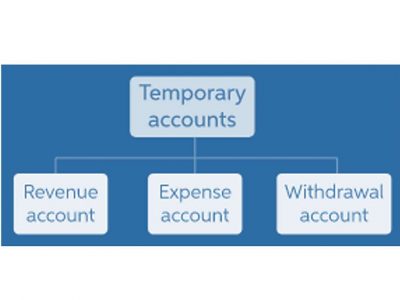
Governments often impose a variety of taxes and royalties to capture a share of the revenues generated from natural resource extraction. These can include corporate income taxes, production taxes, and specific levies such as severance taxes. The complexity of these tax regimes requires companies to maintain meticulous records and employ sophisticated tax planning strategies to ensure compliance and optimize their tax liabilities. Impairment oil and gas accounting testing ensures the carrying amount of an asset does not exceed its recoverable amount.

The Differences Between Upstream, Midstream, and Downstream Accounting Services
- Under the equity method, an investor recognizes its share of the joint venture’s net income or loss in its financial statements, reflecting its investment in the venture.
- Effective management of taxation and compliance in oil and gas accounting requires a robust understanding of the industry-specific financial principles, as well as the ability to adapt to evolving regulatory landscapes.
- Accounting for oil and gas industry presents unique challenges that demand specialized knowledge and expertise.
- Due to the sector’s unique operational structure — which includes exploration, drilling, production, and distribution — standard accounting methods are adapted to meet industry-specific requirements.
- Regulatory requirements and market conditions can significantly impact revenue recognition practices in the oil and gas sector.
Accurate cost allocation is essential for ensuring that each partner’s financial statements reflect their true economic interest in the joint venture. Generic accounting programs often fall short in handling joint venture operations, complex revenue recognition, and reserve reporting. Industry leaders use specialized accounting software that helps improve processes and reach certain business goals. To address these industry-specific issues effectively, oil and gas companies require specialized accounting expertise and robust systems. While some firms may struggle with these complexities, others have developed tailored solutions to ensure accurate financial reporting and compliance.
Strengthen Regulatory Compliance Knowledge

Stored results can be further utilised to optimise the reservoir performance of a producing field, possibly optimising the utilisation in case of a transportation system. We are committed to delivering the highest quality, lifelong, learning experience to accounting professionals in the oil and gas industry. Lainie recently joined PetroLedger in January 2022 as a Production Accountant after 25 years in the oil and gas industry. After spending a couple of years as a receptionist, she decided she needed a change Cash Flow Management for Small Businesses in career, and became a Production Assistant for an oil and gas company.

Software

There are a lot of differences with oil, gas, and mining companies but the overarching ones are that they cannot control prices and that they have depleting assets that constantly need to be replaced. It is widely used in oil, gas, mining, and other commodity-based sectors, and it often produces more accurate results than the standard DCF analysis. The good news is that most of the same valuation methodologies you’re used to seeing – public comps, precedent transactions, and even the DCF model – still apply to (most) oil, gas & mining companies.
- These are amortized over the useful life of the asset or lease term, following GAAP and IFRS standards.
- Accounting methods and principles should be applied consistently from one period to another.
- In some locations it is too costly or not practical to implement metering of flow rates, e.g. down in the wells and in many places at process plants, especially on subsea plants.
- It is crucial to have a skilled Production Accountant who understands the daily/monthly routines and deadlines.
- As we move forward, it’s important to understand the key financial reporting standards that govern oil and gas accounting.
- This accessibility ensures that financial reporting is consistent and up-to-date, regardless of location.
- Harrison is very involved with the University of Tulsa, where he earned a degree in MIS and Accounting.
- Accurate cost management allows companies to comply with these standards, providing transparency to stakeholders and regulatory bodies.
- When there are conflicts between different accounting principles or methods, a hierarchy exists to guide the selection of the most appropriate principle.
- She grew to love the industry, and, since then, she has spent 25 years as a Production Accountant.
- Government forms and labour market data may group and refer to an occupation differently, depending on the system used.
These improvements should ultimately lead to being more efficient with fewer resources, but it’s still a work in progress. Generally Accepted Accounting Principles (GAAP) as set forth by the Financial Accounting Standards Board (FASB) when managing the book of any company regardless of the size and whether a company is public or private. Additionally, it is essential to act with the utmost integrity, respect, and due diligence. We are compliant with the requirements for continuing education providers (as described in sections 10.6 and 10.9 of the Department of Treasury’s Circular No. 230 and in unearned revenue other IRS guidance, forms, and instructions).

